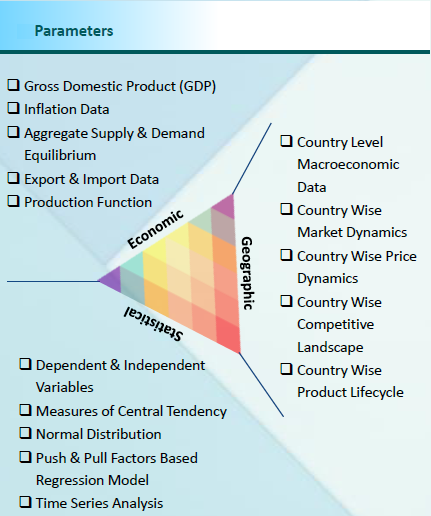According to this research report, the market is estimated to grow at a CAGR of 7.9% from 2017 to 2025. The market is expected to be worth $3540 million by the end of 2025.
Table of Contents
Gout Therapeutics Market – Introduction
The global gout therapeutics market is expected to grow at a fast pace during the forecast period of 2017 to 2025. In the gout therapeutics market report, the market is segmented based on drug type and region. Gout can be termed as a variant of arthritis and can either be acute or chronic. Gout is the formation of uric acid crystals in the joints, which is again caused by hyperuricaemia, or high levels of uric acid in the blood. The formation of crystals leads to pain, swelling, and tenderness of the joint, among others. Gout is mostly prevalent in men and common causes include obesity, high quantities of alcohol consumption, and a rise in the consumption of purine-rich proteins, among others. Gout therapeutics market research report covers all the different types of drugs used for the treatment of gout. The growing gout patient pool has been primarily driving the gout therapeutics market revenue and volume, followed by the introduction of gout therapeutics having higher safety and efficacy.

Report Overview
| Aspect | Details |
| Base year of Estimation | 2016 |
| Value Estimation Year | 2017 |
| Forecast Period | 2017 – 2025 |
| Market Segmentations | By Drug Type, Regions |
| Regional Scope | North America, Asia Pacific, Europe, Middle East & Africa and Latin America |
| Report Coverage | Market Dynamics, Segmentation Overview and Competitive Landscape of the market |
Market Segmentation Overview
| Segment | Details |
| By Drug Type | Non Steroidal Anti-Inflammatory Drugs, Colchicine, Corticosteroids and Others |
| By Regions | North America, Asia Pacific, Europe, Middle East & Africa and Latin America |
Major Players in the Gout Therapeutics Market
| Headquarters | Corporations |
| England | AstraZeneca Plc |
| Japan | Takeda Pharmaceutical Co. Ltd. |
| Ireland | Horizon Pharma Plc |
| The U.S. | XOMA, Ltd. |
| China | 3SBio, Inc. |
What Are the Driving Factors for the Growth of Gout Therapeutics Market?
- Growing rates of gout patients in the developing and developed countries
- Increasing usage of urate lowering drugs used to control the Uric Acid level in the body
- Approval of several new urate lowering drugs
Market Dynamics
Studies reveal that the prevalence of gout has been increasing at a high pace, mostly in developed nations. The prevalence rate in developed nations ranges from 1.2% to above 4.0%, of which almost 80% is male. The prevalence rate in developing nations ranges between 0.3% and 1.8%, but is growing at a fast pace. The rising number of gout patients is primarily driving the expansion of the gout therapeutics market.

The growing usage of urate-lowering drugs, used for lowering the overall uric acid level in the body, is a relatively new trend in the gout therapeutics market and has been positively impacting the growth of the market. These drugs are being increasingly prescribed by physicians as a standalone treatment or in combination with traditionally prescribed gout medications. Certain urate-lowering drugs, such as pegloticase, are only used as third-line therapy since they have higher rates of side effects.
Complementary and alternative medicine (CAM) has been a major restraining factor for the gout therapeutics market and is also expected to have a negative impact during the forecast period. However, the approval of several new urate-lowering drugs is expected to negate such restraints for the gout therapeutics market and is also expected to offer good growth opportunities. Additionally, since gout patients can only receive symptomatic treatments and cannot be cured completely, the growing patient population is expected to increase the growth opportunities for the gout therapeutics market.
Segmentation Overview
By drug type
By drug type, the global gout therapeutics market is segmented into non-steroidal anti-inflammatory drugs (NSAIDs), colchicine, corticosteroids, and others. Other segments include urate-lowering drugs. NSAIDs are mostly recommended by physicians, while colchicine has been reported to have high rates of side effects. A combination of all these therapies is also suggested by physicians, depending on the patients’ condition and symptoms, and is instrumental in the gout treatment market’s growth.
- Non Steroidal Anti-Inflammatory Drugs,
- Colchicine, Corticosteroids and Others
By geography
By geography, the market has been segmented into Asia Pacific, North America, the Middle East & Africa (MEA), Europe, and Latin America. In terms of revenue, North America accounted for the largest market share of the gout therapeutics market, followed by Asia Pacific. The presence of a large patient pool and a large number of pharmaceutical companies is the primary growth driver for the North American market for gout therapeutics.
- North America,
- Asia Pacific,
- Europe,
- Middle East & Africa, and
- Latin America
Competitive Landscape
Major companies operating in the gout therapeutics market are AstraZeneca Plc (England), Takeda Pharmaceutical Co. Ltd. (Japan), Horizon Pharma Plc (Ireland), XOMA, Ltd. (The U.S.), and 3SBio, Inc. (China) among others.
Why Buy this Report?
- The report provides in-depth analysis of market determinant factors.
- It analyzes market dynamics for each segment (such as Drug Type, Regions).
- Report provides 8 years forecast by analyzing push and pull factors affecting the dynamics of the market.
- This market report provides application level cross sectional analysis for each product type.
- Report provides regional level pricing trend analysis.
- It acts as business decision support system by analyzing key trends in each market segment.
- This report provides insights regarding business strategies of leading market players.



